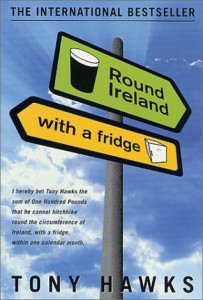 Title: A Man in Love (Goodreads)
Title: A Man in Love (Goodreads)
Author: Karl Ove Knausgård
Translator: Don Bartlett
Series: Min Kamp #2
Published: Harvill Secker, 2009
Pages: 528
Genres: Contemporary
My Copy: Library Book
Buy: Amazon, Book Depository (or visit your local Indie bookstore)
Karl Ove Knausgård’s six volume autobiographical novel, My Struggle (Min Kamp) has been dubbed a literary sensation more often than I can count. Despite what the critics think, I often look to the book blogging community to help measure the success and popularity of a book and sadly this series hasn’t really become the sensation it should be. It has been compared to Proust but I think that is mainly because of the large autobiographical nature, My Struggle tells the story of Karl Ove Knausgård’s life in a non-linear way; A Death in the Family (My Struggle #1) focuses on the theme of death, while A Man in Love (book 2) looks at love.
When Karl Ove Knausgård leaves Oslo and starts his life afresh in Stockholm, it is because of a messy breakup with his wife. His move to Stockholm is aided by Geir, in which he develops a deep friendship with. He also meets a beautiful Swedish poet, Linda Boström, who captivated him and becomes the object of his affection. A Man in Love is the story of Karl Ove and Linda’s blossoming romance, eventual marriage and children.
As stated in my review of A Death in the Family, this series of books have been met with massive controversy and his friends and family have been none too pleased. His ex-wife has stated in an interview that he has made a “Faustian bargain”, sacrificing relationships for this series of books. Karl Ove Knausgård is brutally honest and doesn’t paint the best light on himself or others, despite the fact this is considered an autobiographical novel.
Compared to A Death in the Family, A Man in Love is a linear story that focuses on the relationship between Karl Ove and Linda. Knausgård writes with such affection and love towards Linda and there is such a tender and sweet tone to the book. However because he wants to remain viciously truthful there are moments where she isn’t portrayed as the sweet woman he feel in love with. Knausgård airs all their domestic disputes and Linda sometimes comes across as aggressive, angry and stubborn. In contrast, the reader will also notice that Karl Ove Knausgård is flippant, arrogant and narcissistic.
I loved the dark themes and what Knausgård had to say on bewilderment and grief, so I kind of felt like this was a little light and flowery for me. Don’t get me wrong, there are some dark moments here and Linda Boström Knausgård’s outbursts make their relationship rough but there was just something that bugged me about this novel. Karl Ove kept threating to leave Linda every time she had an outburst and that bothered me but I realised that was his style of arguing and at least he was honest about his flaws as well. After a little bit of research I found out that Linda suffers from bipolar disorder, which I don’t remember being revealed in the book but helps put things into perspective.
A Man in Love is a novel about love and Karl Ove’s relationship with Linda, which is an important part of his life but doesn’t always make for a compelling read. I did enjoy this novel and I am looking forward to picking up book three in the Min Kamp series, Boyhood Island. It sounds like the majority of the story has been covered in A Death in the Family but I will find out soon. The fourth book in the series is set to be released in March next year, but then I will be stuck waiting for the last two books. Karl Ove Knausgård’s My Struggle is well worth checking out and I am disappointed that not many other people are reading it, but maybe they are just waiting till the entire series is released.

 Title: Middlemarch: A Study of Provincial Life (
Title: Middlemarch: A Study of Provincial Life ( Title: What Is Literature? (
Title: What Is Literature? ( Title: The Crocodile Club (
Title: The Crocodile Club ( Title: Merciless Gods (
Title: Merciless Gods ( Title: Roadside Picnic (
Title: Roadside Picnic ( Title: Round Ireland with a Fridge (
Title: Round Ireland with a Fridge ( Title: Why I Read: The Serious Pleasure of Books (
Title: Why I Read: The Serious Pleasure of Books ( Title: Annihilation (
Title: Annihilation ( Title: Not Drowning, Reading (
Title: Not Drowning, Reading (